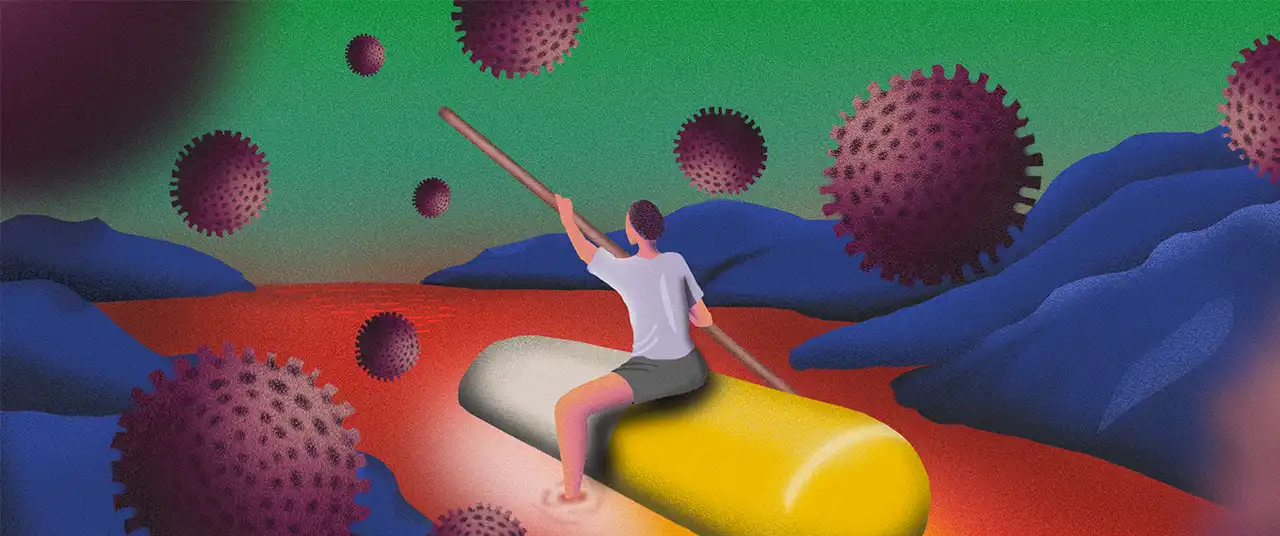The state does not have a solid action plan in place






Between April 2023 and March 2024, Tamil Nadu issued corrective actions to 517 pharmacies and suspended 283 licences for violations including unsupervised drug sales, failure to maintain prescription registers, and dispensing drugs without prescriptions from registered medical practitioners, according to data we accessed from the Drug Control (DC) Department.
The department has ramped up pharmacy inspections across the state, raising awareness on restricted antibiotic use to curb antimicrobial resistance. “We are invoking the provisions of the Drugs and Cosmetics Act, 1945, to suspend the licence of pharmacies that sell antibiotics without a prescription. We find this approach more effective than court prosecution, as closing the shop brings about a behavioural change,” said MN Sridhar, joint director, Drugs Control cum Controlling Authority.
The assistant director of drugs control conducts annual awareness sessions for pharmacies across the state’s 26 zones. “We have WhatsApp groups for each zone to regularly discuss AMR (antimicrobial resistance) and stress the importance of not giving antibiotics without a prescription,” said Swaminathan Elangovan, treasurer of the Tamil Nadu Chemists and Druggists Association, which has 30,000 members across the state.

Meanwhile, the health department is streamlining infection control committees in major private and public hospitals to monitor antimicrobial susceptibility, provide guidelines, and restrict the excessive use of antibiotics. Headed by microbiologists in medical college and teaching hospitals, these committees work to control infections and encourage judicious antibiotic use.
Ground reality
India launched its National Action Plan on antimicrobial resistance in 2017. But seven years later, Tamil Nadu still hasn’t developed a state-level action plan. “Even without a plan, we’ve been consistently working to keep antibiotic use in check,” said MN Sridhar, Joint Director of Drugs Control.
Yet, the situation on the ground remains concerning. “Creating a state action plan involves coordination with various departments beyond health, such as agriculture and environment. It took us some time to bring them all under a singular umbrella to work on the plan,” said an official from the Directorate of Public Health and Preventive Medicine (DPH), who requested anonymity.
Patients who buy antibiotics over the counter often cite time constraints, avoidance of doctor fees, and a perception that the same drug is always prescribed.
Out of seven pharmacies visited by this reporter and her team to ask about Amoxicillin, one of the most commonly overused antibiotics, four were willing to sell it without a prescription. The pharmacies are located in rural areas of Trichy, Nagapattinam, Thanjavur and Thiruvallur.
A 2022 study published in the National Library of Medicine, which looked at 15 independent pharmacies in a major city and a smaller city, found that antibiotics like Amoxicillin, co-amoxiclav, azithromycin, levofloxacin, and metronidazole were often bought without prescriptions. “Patients who buy antibiotics over the counter often cite time constraints, avoidance of doctor fees, and a perception that the same drug is always prescribed,” the study noted.
“Azithromycin is one of the most abused antibiotics, especially since COVID-19 when restrictions were mild and whatsapp forwards encouraged people to use the drug if they face any symptoms of respiratory distress,” said Nanda Kumar, pharmacist, Sekar Medicals, Thiruvottiyur. “We don’t sell antibiotics without a prescription. We issue sinarest for cold and Dolo 650 for fever,” he added.

Antibiotic resistance in hospitals
Doctors are witnessing an increase in drug resistance within hospitals, signalling a serious health threat. “For example, some Fluoroquinolones, a type of antibiotics used to treat Typhoid, have become resistant due to inappropriate usage. Thus, we are going for new antibiotics, but they are sold at higher cost. This is a dangerous pattern,” said Dr Keerthy Varman, general secretary of the Tamil Nadu Resident Doctors Association.
Antimicrobial resistance poses a significant challenge for the medical community. “For patients who are at a higher risk of infection, we rely on blood cultures and organism identification to determine appropriate treatment. A drug sensitivity test is performed in the lab, and I’ve often seen reports where the infection shows resistance to all standard antibiotics, particularly in critically ill ICU patients. In such cases, we have to resort to different classes of drugs, but the success rate is unfortunately lower,” Varman added.
According to the 2023 annual report by the National AMR Surveillance Network (NARS-Net), certain antibiotics, like methicillin and, to a lesser extent, linezolid, show significant resistance, especially in ICU environments. Research from 41 hospitals across the country, including two in Tamil Nadu, highlights resistance to many drugs.

Status quo
State Action Plans on AMR align with India's National Action Plan and adopt a One Health approach that encompasses animal health, agriculture, and the environment for a comprehensive fight against AMR. “Health is a state subject with major decisions happening at the state level. A state action plan on AMR will provide a clear direction to tackle AMR for all stakeholders,” said Dr S S Lal, director of ReAct Asia Pacific, a global network dedicated to the problem of AMR.
Tamil Nadu hospitals analyse resistance patterns from their patients and periodically submit data to the WHO. The state is working to create a plan, following the examples of other Indian states like Kerala and Delhi, to limit antibiotic use across all sectors.
“There is a desperate need for local antibiotic usage/consumption and antibiotic resistance data from both human and animal sectors. While resistance data among patients are available in major tertiary care hospitals, the same is limited at the secondary care and community levels. Adopting a State Action plan should be seen as a starting point to fill these gaps, to promote awareness among different stakeholders, and to allocate health resources in a better manner,” said Dr Jaya Ranjalkar, former deputy director, ReAct Asia Pacific, who has been working on this issue for over six years.
A model state
Kerala serves as an inspiring model among states with action plans. Through initiatives like the Kerala Antimicrobial Resistance Surveillance Network (KARS-NET), the state collects drug resistance data from public and private hospitals. Awareness of AMR is being raised not only in major medical college hospitals but also in primary care centres.
Earlier, ReAct Asia Pacific had developed and piloted the ‘Antibiotic Smart Communities’ model in Kerala to empower residents and key stakeholders within local government organisations. The model identifies local drivers of AMR and gaps within the community to design context-specific interventions. “A 15-point indicator framework is used to assess the antibiotic smartness of a community,” Dr Jaya said, adding that community engagement is essential to address complex One Health challenges such as AMR besides identifying synergies with other health plans across sectors, engaging private entities and civil societies.
Although Tamil Nadu is taking steps to combat AMR, a unified approach and intersectoral coordination among departments such as health, agriculture, animal welfare, environment, and veterinary services are vital. Adopting a well-funded state action plan on AMR will enhance effectiveness in addressing this issue.
{{quiz}}
Explore other topics











